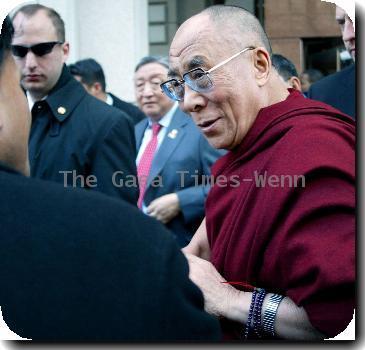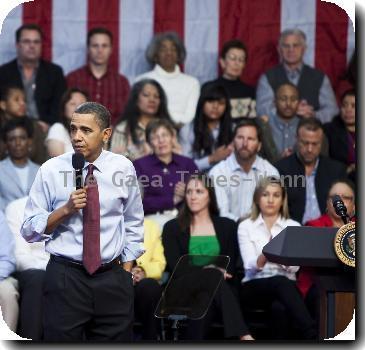Exit of Dutch troops could leave key Afghan province vulnerable to insurgency
By Deb Riechmann, APSunday, February 21, 2010
Dutch exit could leave key Afghan area vulnerable
KABUL — The likely exit of Dutch troops from Afghanistan leaves a key province in the heart of the nation vulnerable to Taliban infiltration — especially if militants are pushed out of their sanctuaries in the south.
The departure of the Netherlands and Canada, which plans to remove its 2,800 troops from the country next year, could prompt other nations in the NATO alliance to rethink their commitment to the eight-year-old war. And it underscores the difficulty President Barack Obama faces in keeping the international contingent intact.
The Dutch serve in Uruzgan province, an area well-known to several insurgent commanders, including Taliban kingpin Mullah Mohammed Omar, who once was a cleric in the Dihrawud district. Moreover, Uruzgan borders Helmand province where 15,000 U.S., Afghan and NATO forces have been fighting insurgents for control of the town of Marjah.
“We need the Dutch force in Uruzgan. The Dutch are very active in reconstruction, and strengthening the Afghan National Army and the Afghan National Police,” Uruzgan’s provincial Gov. Asadullah Hamdam told The Associated Press on Sunday.
“If they leave the country, we will have more difficulties in Uruzgan,” said Hamdam, who worries that Taliban fighters being pushed out of Marjah will move north to his province. “The Afghan army and police are not enough. … Our force is still not standing on their own feet. We are requesting the Dutch to stay.”
The bulk of Australia’s 1,500 troops in Afghanistan are based in Uruzgan doing reconstruction work and training Afghan security forces, but Australian Foreign Minister Stephen Smith said Sunday his country has no plans to fill the vacuum if the Dutch withdraw.
“In the absence of the Dutch, Australia has made it clear to NATO and to the international security assistance forces that Australia is not in a position to take up the lead in Uruzgan province,” Smith told reporters in Perth, Australia. “We’ve made this clear to NATO, as we have the United States.
“So it’s a matter for NATO to resolve the leadership issues in Uruzgan province and we’re confident that particular issue is in hand.”
There are more than 44,000 non-U.S. troops from NATO and partner countries in Afghanistan, compared with more than 74,000 Americans.
Even as the U.S. pours in 30,000 more soldiers, most European nations — including France and Germany — have been reluctant to substantially boost their troop levels, limiting their contributions mainly to instructors for the Afghan army and police.
Afghan Defense Ministry spokesman Gen. Mohammad Zahir Azimi said he is counting on the NATO commitment to stay in Afghanistan until Afghan security forces can assume responsibility for some provinces in two or three years. But he stressed that the NATO commitment was not hinged on one country.
“This is an internal issue between NATO and the Netherlands,” he said.
The Dutch government was bitterly divided over the nation’s presence in Afghanistan where 21 Dutch soldiers have died, including the son of a Dutch military commander, Gen. Peter van Uhm. The issue boiled over this weekend when Prime Minister Jan Peter Balkenende said that despite a marathon cabinet session, he could not bridge differences with the Labor Party, which rejected a NATO request to extend the Dutch deployment beyond August — the current date set for their withdrawal.
Without the support of the Labor Party, Balkenende’s government collapsed. New elections are expected in the spring, but it will take months for a new government to be formed. Balkenende said Sunday his country’s 1,600 troops would probably leave Afghanistan this year.
NATO Secretary General Anders Fogh Rasmussen “continues to believe that the best way forward would be a new smaller Dutch mission, including a provincial reconstruction team in Uruzgan, to consolidate the success that the Dutch have had, and to transition to Afghan lead,” said NATO spokesman James Appathurai in Brussels.
He said NATO won’t intervene in any nation’s discussion about its troop presence in Afghanistan “but we certainly want to keep this as a team effort,” Appathurai said.
Gen. Juma Gul Himat, police chief in Uruzgan province, said if the Dutch troops leave, the Afghan security forces will manage, but they need more equipment, training, air support and economic development — and fast. “Poverty is deep,” he said.
The security situation remains volatile in Uruzgan, Himat said, noting that 67 Afghan policemen have been killed and hundreds of others wounded in the province in the past 12 months.
“We are planning to deploy more forces on the border of Helmand and Uruzgan,” he said. “We need training, mine detection equipment and helicopters.”
Associated Press Writer Amir Shah in Kabul contributed to this report.
Tags: Afghanistan, Asia, Australia, Australia And Oceania, Barack Obama, Central Asia, Europe, Geography, Kabul, Netherlands, North America, United States, Western Europe



